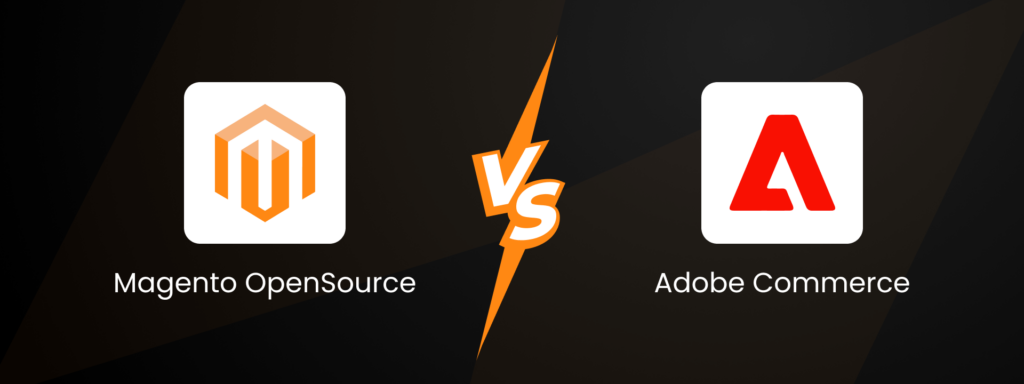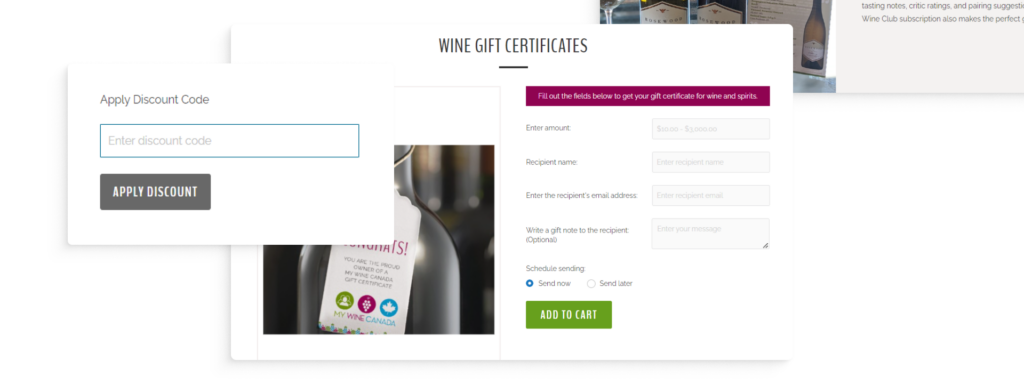“Downgrade” — a word that often carries a negative connotation. When we hear it, we think of compromises, limitations, or stepping back. But in the case of Magento, moving from Commerce to Open Source can actually be a refreshing opportunity!
Imagine living in a spacious home filled with rooms you seldom visit, all while facing high maintenance costs. Doesn’t it make sense to embrace a more efficient, fulfilling space that enhances your life?But is downgrading Magento Commerce to Open Source truly a “step down”? Or could it be a strategic pivot that opens new doors for your business? Let’s find out. Read on for a real example IT Delight has successfully completed: My Wine Canada — from Adobe Commerce Cloud to Magento 2 Open Source.
About “My Wine Canada” Project
My Wine Canada’s journey started with a passion for sharing the world’s finest wines. To facilitate this, they chose Adobe Commerce Cloud as their e-commerce platform. However, it quickly became clear that high licensing fees and limited customization options were hindering their progress.

To address these challenges, the team at My Wine Canada sought an affordable and flexible solution. This led them to partner with our IT Delight Magento Development Company. By migrating to Magento Open Source, My Wine Canada not only realized significant cost savings but also gained the flexibility to innovate and adapt to changing market demands.
My Wine Canada came to us with a clear dilemma: the Adobe Commerce Cloud solution they’d initially chosen was becoming a financial strain, and it wasn’t living up to their expectations. They wanted to switch to a more sustainable platform without losing the critical features their business relied on. We knew we could help by migrating them to Magento 2 Open Source, a solution that would save on costs and provide the flexibility they needed to keep growing.
Ruslan, Project Manager at IT Delight
Magento Open Source vs. Adobe Commerce [2024]
Before we delve deeper into the challenges and solutions our team provided for the My Wine Canada case, we’d like to explain the differences between Adobe Commerce (the paid version) and Magento Open Source. This will help you understand what sets them apart and why My Wine Canada chose to downgrade to Magento Open Source.
The Difference Between Magento Open Source and Adobe Commerce
Adobe Commerce and Magento Commerce are essentially the same platform. Adobe bought Magento in 2018, which led to the rebranding. Both the Open Source and Commerce versions provide strong e-commerce solutions. However, they have different features and pricing models.

None of these options is bad. Both Magento Open Source and Adobe Commerce share a common foundation, but they offer different features and cater to different business needs.
1. Cost
Magento Open Source is a cost-effective solution with no upfront licensing fees. Businesses can allocate their budget towards essential features and customizations.
Adobe Commerce is a premium platform with significant licensing costs, ongoing maintenance fees, and potential vendor lock-in.
2. Features
Magento Open Source is a highly customizable platform that can be tailored to specific business needs. While it may require additional development effort, it offers the flexibility to build unique solutions.
Adobe Commerce is a feature-rich platform with a comprehensive set of tools and functionalities. However, this often comes at a premium cost and may include unnecessary features for many businesses.
3. Flexibility
Magento Open Source offers unparalleled flexibility, allowing businesses to control their platform’s development and customization.
Adobe Commerce may have limitations and require additional licensing for specific features.
4. Support
Magento Open Source benefits from a large, active community of developers and users. This community provides a wealth of resources, support forums, and third-party extensions.
Adobe Commerce offers dedicated support channels, but these can be costly and may not always provide the customization and flexibility needed.
Choosing between these two platforms really comes down to what your business needs, your budget, and the level of technical support you require. For some businesses, the premium features offered by Adobe Commerce are a must-have. On the other hand, Magento Open Source is a fantastic option for those who want everything they need without any extra frills. It all depends on what works best for you!
Maximize Your E-Commerce Potential with Magento Open Source!
Drop us your contact details.
Why Did My Wine Canada Chоse to Downgrade?
It makes perfect sense to dive into why My Wine Canada decided to downgrade. Let’s chat about it next.
For My Wine Canada, the decision to migrate from Adobe Commerce to Magento Open Source wasn’t about settling for less—it was about making a strategic choice. They realized their business didn’t require the full suite of enterprise tools Adobe Commerce offered. Instead, they needed a leaner, more cost-efficient solution that still allowed them to deliver a high-quality customer experience. Sometimes, a simpler, more focused solution is the key to unlocking long-term success.

Migration from Magento Cloud to Magento Open Source: How It Was?
The shift from Adobe Commerce Cloud to Magento Open Source required detailed planning. Our team started by auditing My Wine Canada’s current platform. We identified all custom features, integrations, and important data points needed for the Magento migration.
The Project Challenges
Migrating from Adobe Commerce Cloud to an open-source solution had its own unique challenges. My Wine Canada depended on several key custom features:
- Gift Card Management, for applying gift cards across multiple vendors.
- Complex Cart Rules to offer flexible promotions and discounts.
- Multi-Vendor Invoicing that allowed seamless invoicing across their vendor network.
Beyond keeping these features intact, we had to ensure the platform remained stable and compatible with payment gateways like Stripe.
The migration was completed successfully, despite technical challenges and a tight deadline. We created a strong, scalable, open-source platform that meets My Wine Canada’s unique needs. This ensures a smooth transition and positions the company for future growth. And, of course, the project needed to be completed within the agreed deadline.
Developing the Solution
Our team took on the challenge with a clear, step-by-step migration plan:
- Gift Card Functionality – We made sure gift cards would still work across vendors on the new platform.
- Cart Rules – We carefully transferred complex cart rules, preserving My Wine Canada’s ability to create flexible sales and discount options.
- Multi-Vendor Invoicing – Our team recreated this feature so that all vendors could still manage invoices smoothly.
At every step, we prioritized performance optimization and ensured payment gateways continued working without interruption.

Reflecting on the Results
My Wine Canada achieved the results they planned for, marking an important step in their operational strategy:
- Cost Savings
By shifting to a scalable open-source solution, My Wine Canada has successfully eliminated licensing fees, resulting in substantial cost savings. This change allows them to allocate resources more efficiently and invest in other business areas.
- Seamless Operation
All critical features were preserved throughout the transition, ensuring that the user experience remained intact. Key functionalities, including gift card processing, customizable cart rules for promotions, and efficient multi-vendor invoicing, continue to operate smoothly, allowing the business to provide outstanding customer service.
- Future-Ready Platform
The new system is flexible and designed to adapt to My Wine Canada’s evolving needs. This open-source platform facilitates seamless updates and integrations, providing the scalability necessary for the company to expand its offerings and accommodate future growth without the constraints of traditional software solutions.

Timeline: from August to October 2024
The migration from Adobe Commerce to Magento Open Source was executed within three months. This timeline ensured enough room for thorough planning, seamless implementation, and rigorous testing. Maintaining a focused schedule allows the team to complete the transition on time without compromising quality or performance.
Team Structure
A small yet highly skilled team was assembled to ensure the project’s success:
Backend Developer:
The backbone of the technical transition, responsible for migrating custom features, maintaining compatibility with existing tools, and optimizing performance on the new platform.
Project Manager:
Oversaw the entire process, coordinated between team members and the client, managed the timeline, and ensured smooth communication to keep the project aligned with its goals.
QA Engineer:
Conducted rigorous testing at every stage to ensure all features worked seamlessly, identified potential issues, and validated the stability and functionality of the new platform before launch.
This lean and focused team structure was pivotal in delivering a seamless migration experience while meeting the client’s specific needs and deadlines.
My Wine Canada Testimonial
The team had a lot of attention to detail. They were committed to keeping the website working as best as possible. So, all the performance and all the functionality were maintained, and the product was delivered on time. 100%, I’ll recommend IT Delight and will continue working with the team on new projects.
Alberto Alvarado, President at My Wine Canada
To Sum Up
The migration to Magento 2 Open Source was seamless and completed right on schedule. By downgrading Magento 2 Commerce to Open Source, My Wine Canada now operates on a more cost-effective and sustainable platform that perfectly aligns with their business needs. They’ve successfully maintained the same exceptional customer experience while eliminating the burden of high recurring fees. Seeing My Wine Canada thrive on their new platform validates our decision to recommend this strategic downgrade. IT Delight helps businesses move from expensive cloud services to open-source platforms. This change allows businesses to grow both now and in the future. Contact us to learn more!
